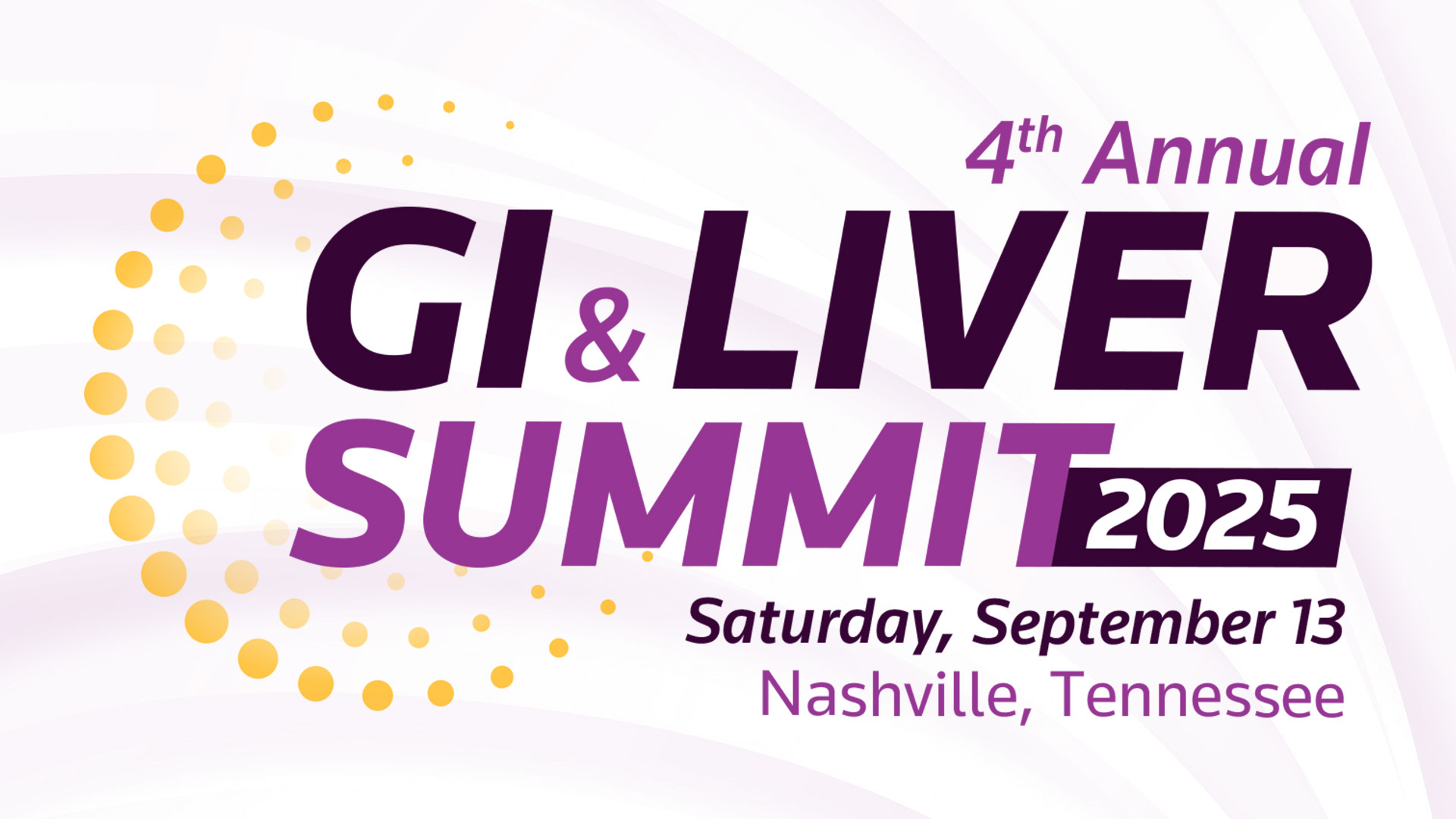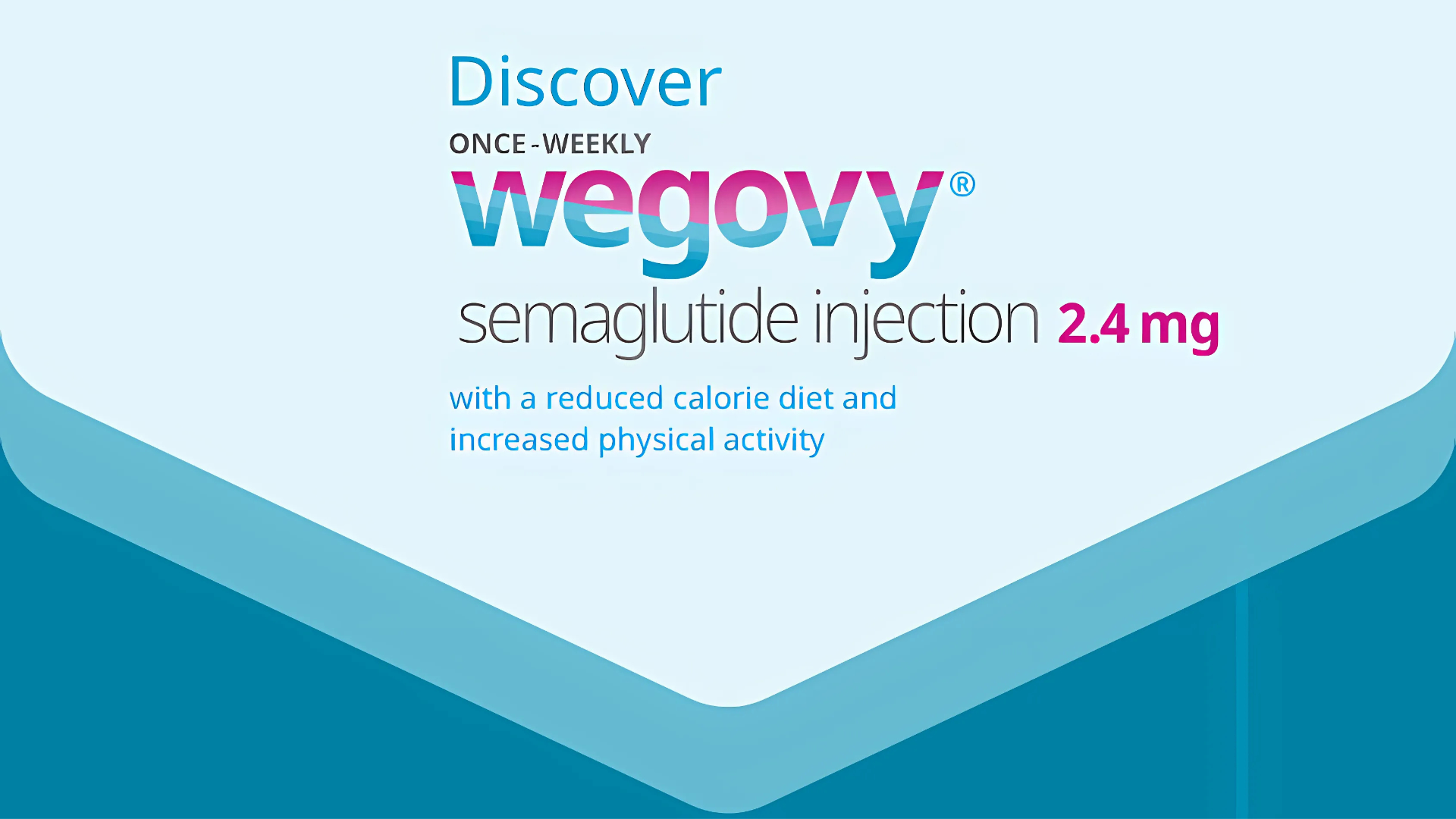
Jeremy Davis
ACNP-BC
Location : Shreveport, LA, USA
BIO
Jeremy Davis ACNP is a board-certified acute care nurse practitioner who has been practicing in the focus of hepatology at GastroIntestinal Specialists A.M.C. since 2012. Jeremy’s areas of interest include MASLD, MASH, Hepatitis B, Hepatitis C, cholestatic liver disease, and autoimmune liver disease.
Jeremy has been an active faculty ambassador of Gastroenterology & Hepatology Advanced Practice Providers (GHAPP) since 2019 and is a lecturer at both regional and national conferences.
Jeremy is also an Associate member of the American Association for the Study of Liver Diseases (AASLD) since 2014.
Jeremy received his Bachelor of Science degree and Master of Science Degree in Nursing from Northwestern State University in Natchitoches, Louisiana.
Jeremy’s hobbies include spending time with his family, cooking and traveling.
MASLD-MASH Content Featuring Jeremy
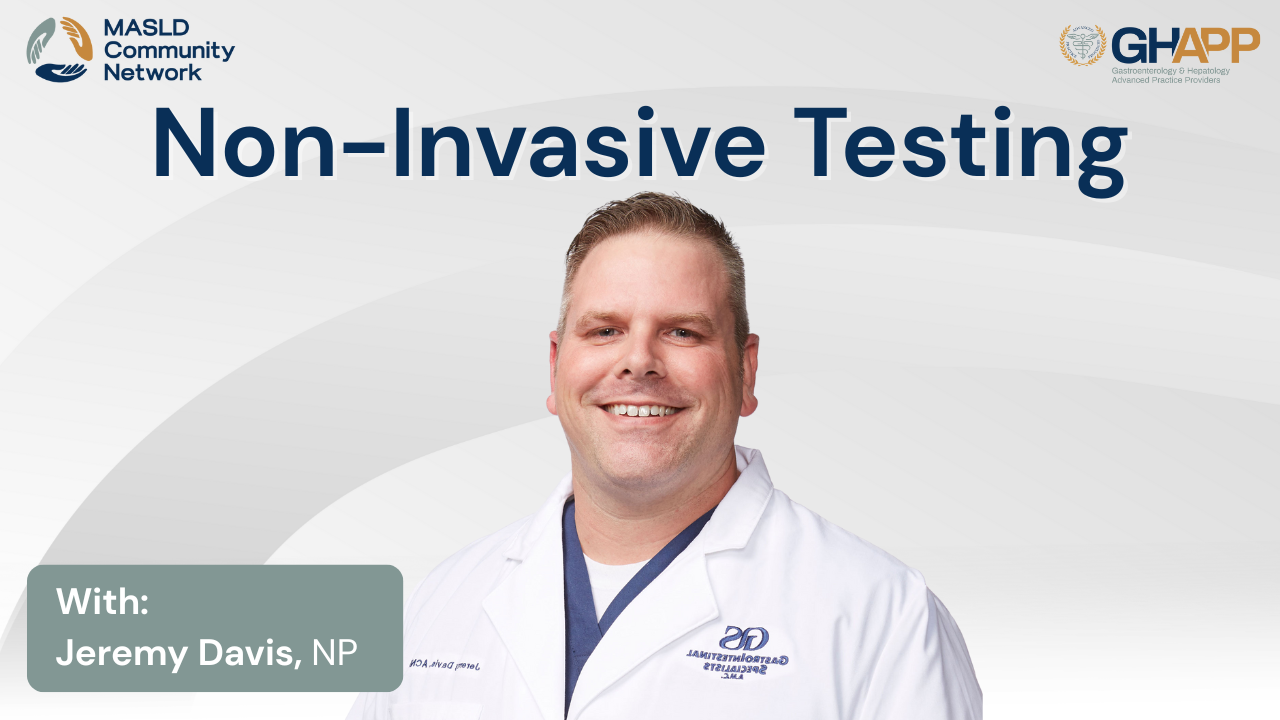
Non-Invasive Testing With Jeremy Davis

Join Jeremy Davis, NP, for a clear, clinic-ready walkthrough of non-invasive testing for MASLD/MASH. Using a real case, Jeremy shows how to risk-stratify patients starting with FIB-4 and when intermediate scores should trigger liver stiffness measurement. Learn practical cutoffs, image-quality checkpoints (valid measures, IQR/median), and common confounders (ALT/AST flares, cholestasis, recent meals, alcohol, obesity, ascites) that can overestimate stiffness. He contrasts pros/cons of VCTE vs. MRE, explains how to pair ELF with FibroScan, and maps decisions to AGA/AASLD-aligned pathways—who to refer, who to monitor, and how often to re-stage. The session closes with actionable counseling on lifestyle, weight loss targets, and cardiometabolic risk control to slow fibrosis progression while minimizing unnecessary biopsies.
Watch Now
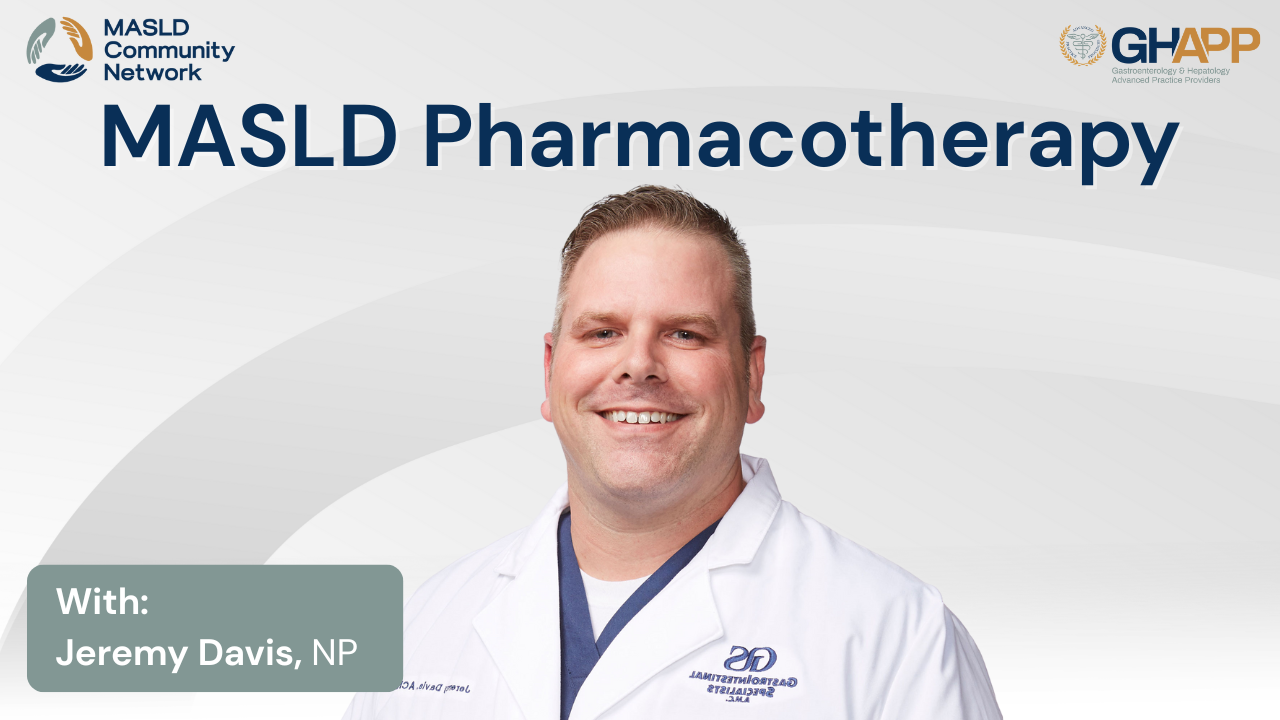
MASLD Pharmacotherapy With Jeremy Davis

In this clinician-focused talk, Jeremy Davis, NP, delivers a clear, practical guide to MASLD/MASH pharmacotherapy—from foundational lifestyle and weight-loss strategies to medications that move the needle. He reviews the role of GLP-1 receptor agonists (and emerging dual agonists) for weight reduction and glycemic control, peri-procedure considerations (delayed gastric emptying/aspiration risk), and where legacy options like vitamin E (select non-diabetic, non-cirrhotic patients) and pioglitazone fit, including benefits and safety trade-offs. The session spotlights resmetirom—the first FDA-approved, liver-directed THR-β agonist for non-cirrhotic MASH with F2–F3 fibrosis—covering its mechanism, key MAESTRO-NASH data, common AEs (nausea/diarrhea), and practical drug–drug interaction/statin-dosing considerations. You’ll also learn how to structure follow-up with non-invasive testing (FibroScan kPa/CAP, ELF, labs), set measurable lifestyle goals, coordinate cardiometabolic risk reduction (T2D, hypertension, dyslipidemia), and navigate coverage and duration questions—so you can confidently tailor therapy and improve outcomes across the MASLD/MASH spectrum.
Watch Now
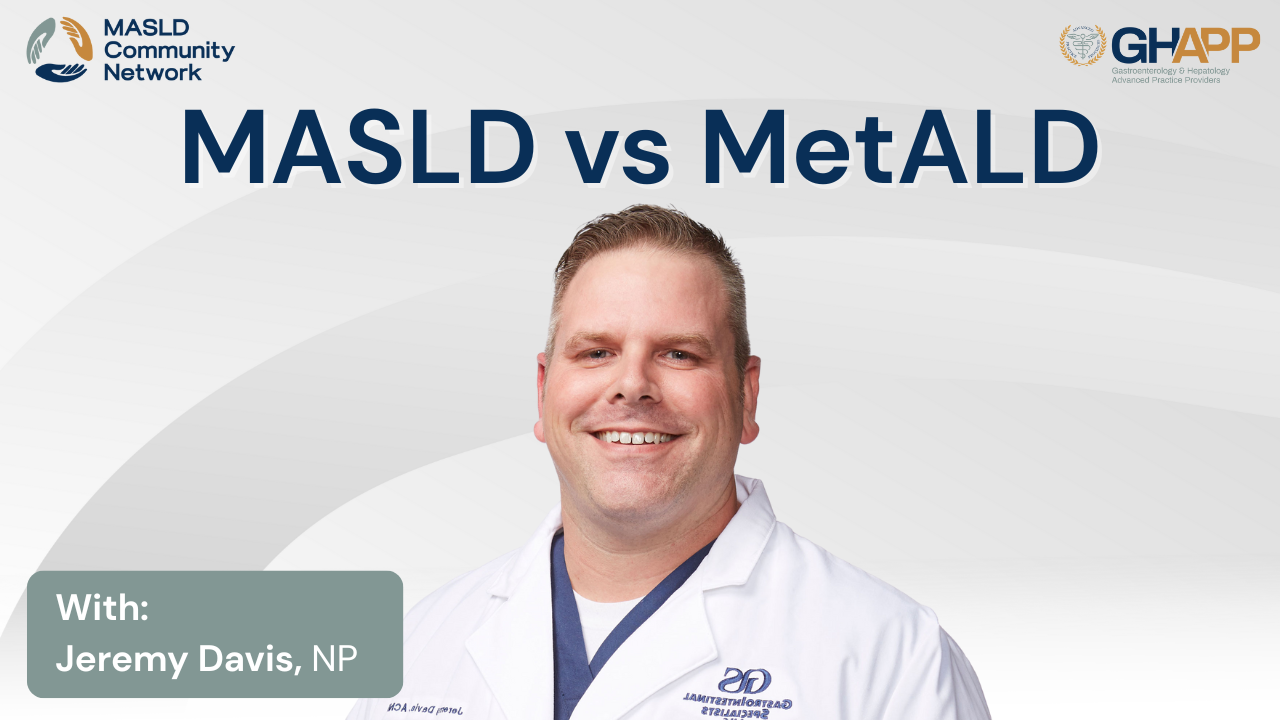
MASLD vs MetALD With Jeremy Davis

In this MASLD Community Network talk, Jeremy Davis, NP, uses a real-world case to clarify how to differentiate MASLD from MetALD, interpret alcohol exposure, and stage disease with non-invasive tools. He explains standard drink equivalents (≈14 g ethanol) and why accurate histories plus objective biomarkers matter, then walks through labs and elastography (FibroScan kPa/CAP) showing F3 fibrosis with severe steatosis. You’ll learn a practical workflow to rule out alternative etiologies, quantify alcohol use, and understand how metabolic risk plus alcohol accelerates fibrosis and decompensation risk. Jeremy outlines counseling pearls (abstinence recommendations, Mediterranean-style diet, weight loss, activity), eligibility considerations for resmetirom in non-cirrhotic MASH (F2–F3), and when to start HCC surveillance. Watch to strengthen your staging, counseling, and treatment decisions for patients who fall along the MASLD–MetALD spectrum.
Watch Now
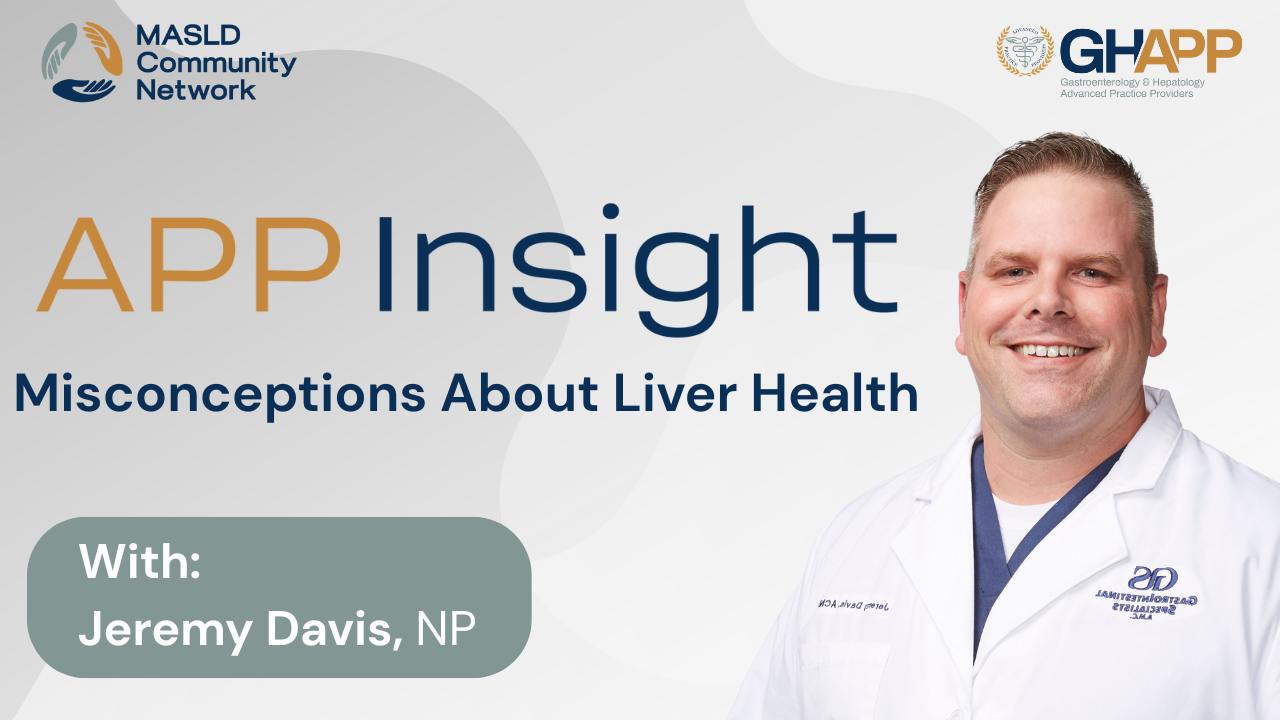
Misconceptions About Liver Health

In this quick but powerful video, Jeremy Davis, NP from Shreveport, Louisiana, addresses some of the most common misconceptions about liver health that he encounters in clinical practice. Many patients believe that liver disease only occurs in people who drink alcohol, but Jeremy explains how conditions like MASLD (Metabolic dysfunction-associated steatotic liver disease) and MASH (Metabolic-associated steatohepatitis) can affect individuals regardless of alcohol use. He also clears up the myth that only overweight patients are at risk, pointing out that co-morbidities such as hypertension, high cholesterol, cardiovascular disease, and type 2 diabetes can contribute to liver disease—even in patients with a normal BMI. Finally, Jeremy explains why normal liver enzyme labs (ALT and AST) don’t always rule out liver disease, making it crucial to assess underlying risk factors and improve provider and patient awareness. This video is a valuable resource for both healthcare professionals and patients looking to better understand non-alcoholic liver disease and why early screening matters.
Watch Now

PCP Screening for MASH/MASLD: Identifying At-Risk Patients

In this episode, Jeremy Davis, NP from Gastrointestinal Specialists in Shreveport, Louisiana, discusses the vital role of primary care screening for MASLD (metabolic dysfunction-associated steatotic liver disease) and MASH (metabolic-associated steatohepatitis). With the rising prevalence of metabolic co-morbidities like type 2 diabetes, hypertension, dyslipidemia, and obesity, early identification of at-risk patients is more critical than ever. Jeremy outlines practical and evidence-based strategies for screening in the primary care setting, starting with simple tools like the FIB-4 score—which relies on common lab values—and how to interpret results to guide referrals to hepatology or GI specialists. He also discusses the downstream workup upon referral, including non-invasive tests like FibroScan, ELF score, and liver ultrasound. Treatment fundamentals such as the Mediterranean diet, physical activity, and weight loss remain the cornerstone of care, while emerging therapies like GLP-1 agonists and resmetirom offer new options for high-risk patients. Whether you’re a PCP, APP, or specialist, this episode offers clear guidance on how to incorporate MASLD screening into everyday workflows to catch liver disease early and optimize outcomes.
Watch Now

Management of Life Style Modification

This video focuses on the comprehensive management of patients with metabolic-associated steatohepatitis (MASH), emphasizing lifestyle modifications, dietary adjustments, and exercise strategies. Key topics include the importance of addressing risk factors like diet, exercise habits, and alcohol intake, as well as referrals to medically supervised weight loss clinics or bariatric surgery for advanced cases. The speaker highlights the benefits of the Mediterranean diet, intermittent fasting, and avoiding ultra-processed foods while discussing the role of resistance training to combat sarcopenia and maintain muscle mass. Practical advice and tailored recommendations ensure a holistic approach to managing MASH and improving patient outcomes.
Watch Now

Third Step of Life Style Management

This video provides a comprehensive overview of emerging pharmacologic treatments for metabolic-associated steatohepatitis (MASH) and their tailored applications based on patient profiles. Topics include FDA-approved therapies, drugs in advanced clinical trials (such as semaglutide and lanifibranor), and the potential for combination treatments targeting both steatohepatitis and fibrosis. The speaker emphasizes the importance of patient-specific approaches considering metabolic profiles, obesity, and diabetes status, alongside lifestyle interventions. Additionally, the video discusses the evolving interdisciplinary care model and highlights the exciting progress in non-invasive testing and treatment advancements for F2-F3 fibrosis.
Watch Now

Approved Medication for MASH/NASH

This video provides detailed guidance on selecting and monitoring patients for emerging therapies targeting advanced fibrosis (F2-F3) in NASH. Key topics include contraindications for patients with cirrhosis, considerations for concomitant medications, and dose adjustments for statins. The video outlines ideal candidates based on specific thresholds for VCTE, MRE, ELF scores, and other non-invasive tests while emphasizing the importance of ruling out portal hypertension and other liver diseases. It also reviews a stepwise monitoring approach, focusing on tolerability at three months and efficacy assessments at six and twelve months, with an emphasis on histologic and non-invasive test improvements.
Watch Now

Types of Diet for the Treatment of MASLD

This video explores comprehensive strategies for managing metabolic-associated steatohepatitis (MASH), focusing on fibrosis risk stratification, lifestyle modifications, and pharmacologic interventions. Learn about dietary recommendations like the Mediterranean diet, exercise guidelines emphasizing resistance training, and the role of intermittent fasting and processed food avoidance. The video also highlights weight loss targets, diabetes management, and emerging therapies such as GLP-1 receptor agonists and bariatric surgery, all aimed at improving liver health and patient outcomes.
Watch Now

NITs to Identify High Risk MASH Patients

Explore advancements in non-invasive diagnostics and risk stratification for liver fibrosis and MASH. This video highlights tools like FIB-4, transient elastography, and innovative scoring systems (e.g., FAST and Agile) to identify and predict outcomes for high-risk patients. Learn about serum biomarkers, updated guidelines, and the role of lifestyle interventions alongside targeted therapies for managing metabolic risks and advancing care in hepatology.
Watch Now





